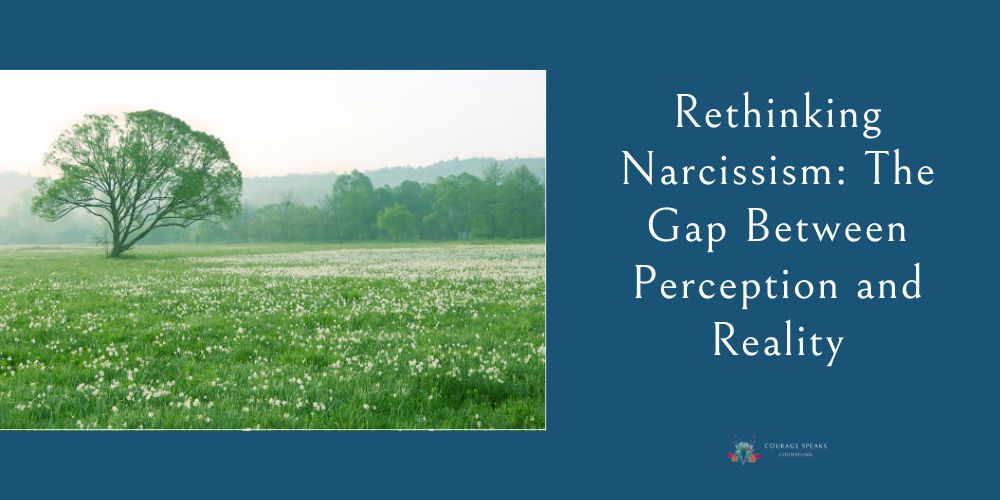In recent years, the term “narcissist” has become a catch-all label for anyone who exhibits behavior we find difficult or hurtful. It’s easy to slap a label on someone and decide that their actions stem from some deep flaw, something fundamentally wrong with them. But what does this really do for us? And more importantly, what does it reveal about ourselves?
Research tells a different story. According to the DSM-5, only about 1% of the population is diagnosed with Narcissistic Personality Disorder (NPD). Yet, studies suggest we label others as narcissists up to 10 times more often than the actual prevalence would justify. This discrepancy between reality and perception raises important questions: Why are we so quick to use this label, and what impact does it have?
When we call someone a narcissist, we might be overlooking the deeper, more nuanced aspects of their behavior—and of our own reactions to it. People are not simply one thing or another; they are complex, shaped by their histories, wounds, and the survival strategies they’ve developed over time.
Imagine for a moment that the behaviors you’re labeling as narcissistic are not just traits of another person but parts of yourself that you might not fully recognize or accept. These parts might show up in ways that are protective, reactive, or even defensive. They could be parts that learned early on how to get needs met when those needs weren’t being acknowledged or validated.
When we start to look at it this way, the focus shifts from pointing fingers to understanding where these patterns originated—from where they arose within us. Maybe it was during a time when love felt conditional or when validation was scarce. Perhaps it was when we felt invisible or unheard, and the only way to be seen was to demand attention or to assert ourselves in ways that now seem overbearing or self-centered.
The person you’re labeling as a narcissist might be showing you something about yourself that’s hard to see. What if this labeling is a defense against acknowledging your own unmet needs or unhealed wounds? When we project these labels onto others, we create a barrier that prevents us from looking inward and seeing the parts of ourselves that might feel a little too close for comfort.
It’s crucial to understand that labeling someone as a narcissist can create barriers to deeper understanding and connection. This doesn’t mean excusing harmful behavior or failing to set boundaries. However, it does mean recognizing that not everyone who behaves in difficult ways is a narcissist. By moving beyond labels, we allow ourselves to see people more holistically and open the door to empathy and healing.
Instead of rushing to label, what if we asked ourselves what unmet needs or unhealed wounds are driving both our reactions and their behavior? How might we respond from a place of wholeness rather than reactivity? And, perhaps most importantly, what can we learn about ourselves in the process?
By shifting our perspective from labeling others to understanding ourselves, we move away from judgment and toward compassion. This change allows us to see the traits we label in others as invitations to heal parts of ourselves. It’s about recognizing that we all have wounded aspects that show up in different ways and that these parts deserve attention and care, not condemnation.
Ultimately, this work isn’t about diagnosing others but about deepening our understanding of the human experience. It’s about seeing beyond the label of “narcissist” and recognizing the shared humanity that connects us all. When we approach others—and ourselves—with empathy and curiosity, we create the space for genuine connection, growth, and healing.
Embracing Shadows, Illuminating Hope,
Chelsey Fjeldheim, LCSW
Empowering Souls on the Path of Healing
Copyright © 2024 Chelsey Fjeldheim, Courage Speaks Counseling




